
Ken Uehara
Story of famed Japanese actress Kinuyo Tanaka, with an emphasis on her working relationship with director Kenji Mizoguchi.
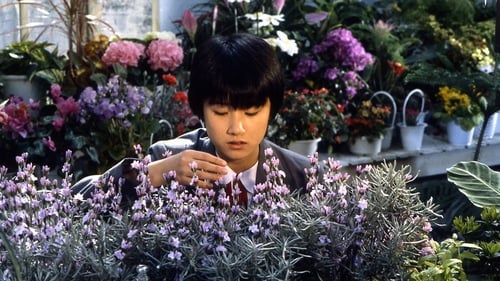
Masaharu Fukamachi
Kazuko Yoshiyama, una muchacha de instituto, descubre de pronto que tiene la capacidad de viajar en el tiempo.

Haruki Eda
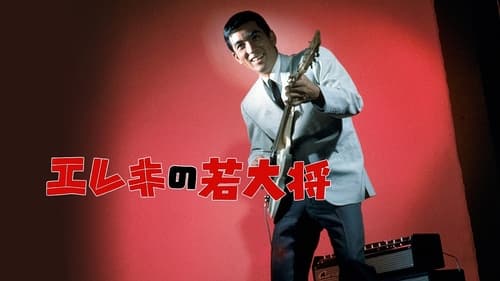
Michiko Matsubara's father
Young Guy (Kayama) competes in an electric guitar competition and plays American-style football. Released alongside Invasion of Astro Monster.
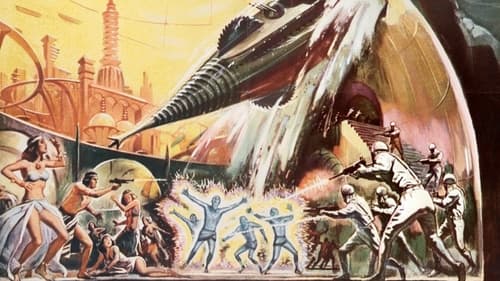
Admiral Kosumi
Varios sucesos extraños están ocurriendo en todo el mundo, incluyendo la desaparición de dos ingenieros. El exalmirante Kosumi casi es secuestrado junto con su secretaria y ahijada, Makoto. El fotógrafo Susumu Hatanaka y su asistente han logrado frustrar el intento de secuestro. Más tarde se revela quiénes son los responsables de los misteriosos acontecimientos: es el Imperio Mu, teóricamente desaparecido hace 12.000 años, y están planeando invadir el mundo de la superficie para reclamar sus supuestas colonias. Es que la civilización del continente perdido ha sobrevivido a su catastrófico hundimiento, viviendo por miles de años bajo el océano Pacífico en cuevas inmensas.
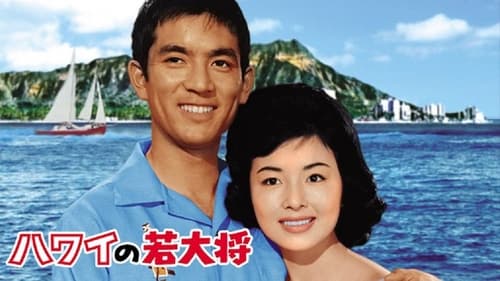
上田
Fourth entry in Toho's Wakadaishō series directed by Jun Fukuda and released on a simultaneous screening with Matango. Filmed on location in Hawaii.
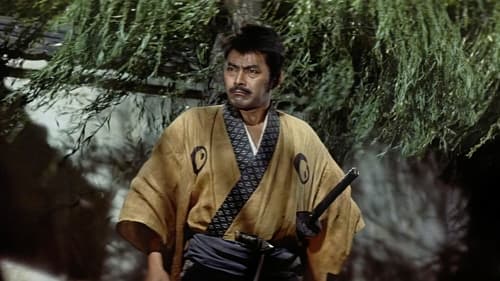
Esta impresionante historia épica ha sido a veces etiquetada como la versión japonesa de "Lo Que El Viento Se Llevó". Chusha Ichikawa personifica a un señor feudal poderoso y despiadado que lucha contra el virtuoso y joven noble, Yuzo Kayama. Ichikawa encuentra una victoria parcial cuando engaña a Kayama y lo convence de hacerse el Hara Kiri. La venganza será realizada por los cuarenta y siete samuráis de Kayama. Basada en una leyenda japonesa venerable, la historia de Chushingura ha sido filmada en varias ocasiones, pero sólo la versión de 1941 (47 Ronin) estuvo a la altura de la versión de 1962, del gran director Hiroshi Inagaki.

Yuuichi Tanuma, our young hero, is a senior at Kyonan University and captain of the marathon team. His parents run a sukiyaki restaurant back in his hometown. When his allowance stops coming in, Yuuichi moves back in with his folks to work part-time. He has his eyes set on nationals in the fall, until one day he runs into a young woman who's fallen into trouble with the Lightning Gang...
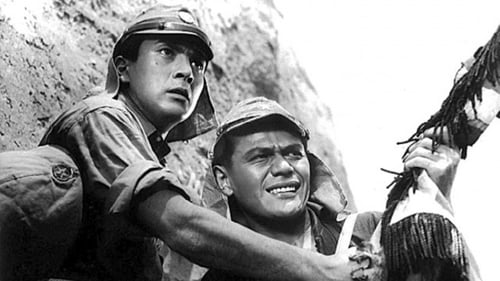
Seki
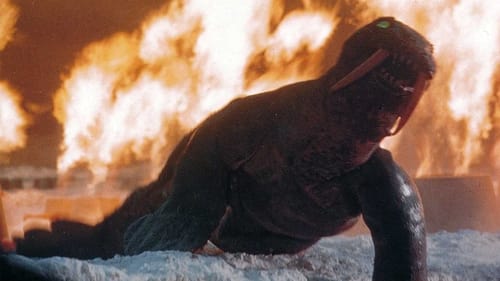
Dr. Kôno
Gorath es un meteoro errante (6000 veces más grande que nuestro planeta) que viaja inexorablemente en curso de colisión contra la Tierra, absorbiendo todo lo que se le envía. Los cientificos tendrán que evitarlo, pero la cosa es difícil ya que la solución propuesta para escapar niega todas las posibilidades de la física al apartar nuestro planeta del camino de Gorath. Tras una cumbre de científicos internacional se propone el lanzamiento de unos proyectiles desde el Polo Sur. Pero el calor provoca el derretimiento de un casquete y la liberación de Maguma, una monstruosa morsa gigante.

Kingoro Shimagawa
Young Yuichi (Kayama) romances Sumiko (Hoshi) while helping out at his family's restaurant, singing in a band, and preparing for an important boxing tournament.

This Japanese film speculates on the events which lead the U.S. and the Soviet Union into a nuclear Armageddon.

Four fishermen friends are caught up in a piracy plot.
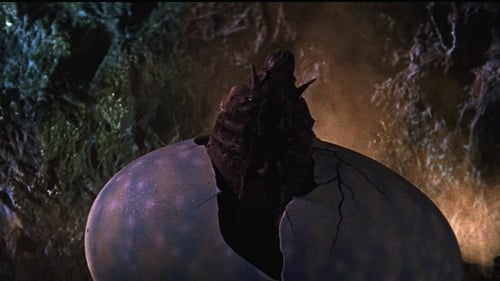
Dr. Harada
Un par de gemelas de aspecto diminuto, habitantes de la isla de Beru, custodian celosamente a su deidad "Mothra". Desgraciadamente, son raptadas y trasladadas a Tokio por un expedicionario sin escrúpulos para ser explotadas artísticamente. Las gemelas utilizarán sus poderes místicos para revivir al gusano gigante a través de la telepatía. Éste a su vez se dirigirá a Tokio, con el firme propósito de recuperar a sus guardianas, ya convertido en polilla gigante y arrasándolo todo a su paso.
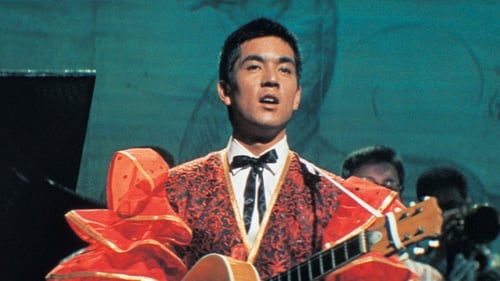
Mr. Nomura
The first instalment in Toho's popular Wakadaishō (Young Guy) series.

Ryuzo Kimura
Romantic melodrama set in contemporary Hong Kong, Japan and Laos. Hiroshi Tanaka (Takarada) is a Japanese journalist on assignment in Hong Kong who meets and falls in love with Wu Li Hung (Ming). He proposes to Wu Li but she rejects him because of her distaste for mixed marriages (her mother was Japanese but deserted her family and returned to Japan during WWII). Tanaka locates Wu Li’s mother and unsuccessfully tries to reunite them, but eventually Wu Li accepts his proposal. A joyous Tanaka flies off to Laos to finish an assignment but on the eve of his wedding he is killed there.

A woman has to give up her dream of becoming an actress when her family goes into debt, but she catches the eye of a businessman while working at a nightclub. He sets her up with her own nightclub, but with expectations attached.
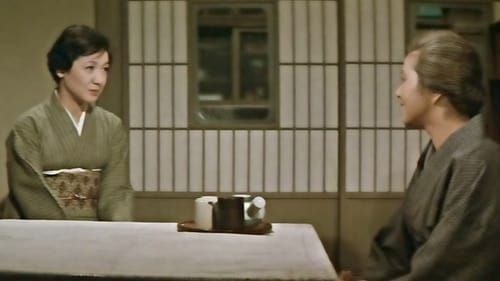
Sokei Gojo
En una familia de clase media de Tokio, una de las hijas (Setsuko Hara) ha enviudado joven, y todos los miembros desean que vuelva a casarse. La madre es una anciana viuda que vive en una casa grande del centro de Tokio. Los hijos están deseando vender la casa, pero no saben qué hacer con su madre.

Koji Kitami pilota uno de los bombarderos de la fuerza aérea japonesa. Él participó en el bombardeo de la base naval americana de Pearl Harbor en 1941, por lo que cuando vuelve a su ciudad natal todos le reciben con honores y orgullo. Esos hechos junto a las victorias japonesas en la guerra hacen que Kitami entre en un estado de exaltación por el honor japonés, algo que no le hará mucho bien cuando la flota nipona es derrotada en la batalla de Midway.

The story tells of Tsuchiya, a university professor and a widower who is in love with a widow who runs a small restaurant, and his son is in love with a runaway girl who turns out to be the leader of a religious sect. Kusano is the henpecked proprietor of a rice biscuit shop who dreams of owning a bird and dog shop and his daughter is in love with a boarder, employed by the private detective agency searching for the runaway girl. The agency head has his own dream of arranging thirty marriages and has already accomplished twenty-seven. Tatsumi is a newspaper reporter who dreams of a big scoop to enable him to marry a girl TV producer and his friend a mountain climbing enthusiast who dreams of joining a Himalayan expedition but is opposed by his wife. His love of the mountains is shared by a boarder in their home and by a fishmonger's son.

Yusaku Kaneko
A modern love story involving different affairs.

Chan
Historical drama about a sleepy-eyed ronin.

Saburo Kakiuchi
Ultra-perky model likes single freedom but feels ryosai kenbo ("good wife, wise mother") pressure, exemplified by her bored-to-tears sister.

Kosaka drops to death while ice climbing with his friend Uozu to see the sunrise on the New Year’s Day. The investigators try to find the cause of the death, then discover that the cut rope was made in the factory for which Uozu’s brother works.

An Ishiro Honda film. The first part of A Rainbow Plays in My Heart released the same day as the second film.
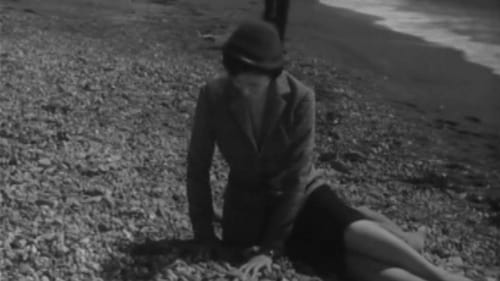
Shuji Aso
An Ishiro Honda film. The second part of A Rainbow Plays in My Heart released the same day as the first film.
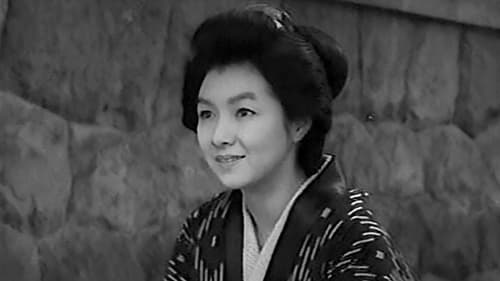
Tsuru, the first husband
A woman marries, gives birth to a stillborn child, and divorces, falls in love with a hotel-keeper, only to find herself subordinated to his drive for success, takes up with a tailor who cannot console himself with her strong personality.

Kazuhiko Onuma
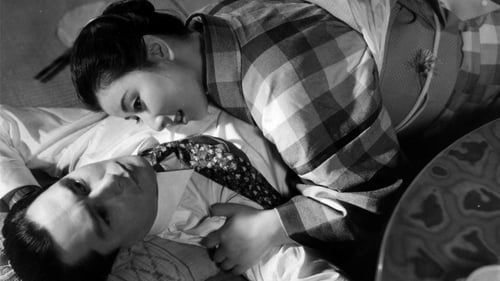
Yukio Takemura
In Kyoto a young kimono maker with traditional ideas gets involved with a married professor.

The president learns that the company's biggest stockholder is also a friend of his singing teacher and spies on his movements.

A new third-class president wins an appointment thanks to his marriage with the former president's daughter.

Yuzo Kaneda
Portmanteau film about young lovers.

Adaptation of the novel by Bunroku Shishi.

Kujō, Nobuko's husband
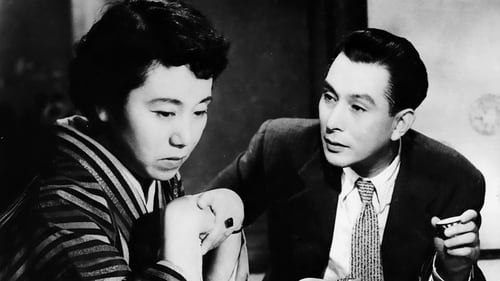
Tabe
¿Cómo es la vida de una Geisha una vez su belleza se ha desvanecido y se ha retirado? Kin ha ahorrado dinero y se ha convertido en una rica prestamista, pasando sus días cobrando deudas. Incluso sus mejores amigas, Tomi, Nobu y Tamae, que eran sus compañeras Geishas, están ahora en deuda con ella. Para todas ellas, el glamour de sus jóvenes vidas ha pasado; Tomi y Tamae tienen hijos, pero sus hijos las han decepcionado. Kin tiene dos antiguos amantes que aún la persiguen; a uno lo quiere ver, y al otro no. Pero incluso el que recuerda con cariño, cuando aparece, resulta ser una decepción.
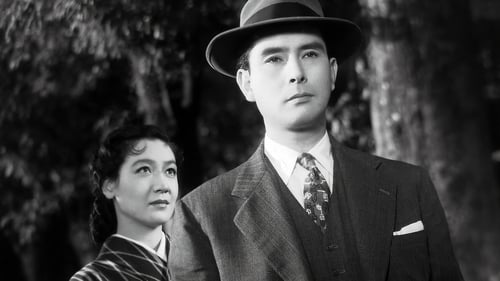
Otto, Shuuichi
Shuichi, hijo de Shingo, un próspero hombre de negocios de Tokio, vive con sus padres y su esposa Kikuki en una confortable casa. Por las tardes, se queda a menudo en la capital, bebiendo y divirtiéndose con su querida. Kikuko aguarda pacientemente su regreso a altas horas de la noche. Shingo, hombre sabio y de talante moderno, es consciente de los desenfrenos de su hijo y compadece a la solitaria Kikuko. (FILMAFFINITY)

Koyama
A family comprised of a man, woman and their only son is torn apart when the father, who is a doctor with his own clinic, is to go off to war. Soon the wife and the son are left without an update of his status and whether he is alive or not. With the clinic lying dormant the doctor's wife rents the premises to her husband's underling. This is a man who does not accept payment from the poor. The woman, in the meantime, works at a restaurant whose owner being ill has given her additional duties. Her younger sister is an unmarried finance writer who also lives with them. It is both sisters, however, who receive marriage proposals.
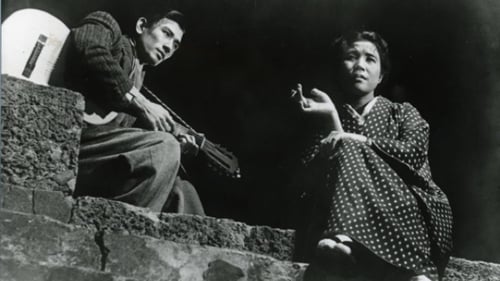
Masayuki Akazawa
At the close of the war in Japan, a widowed mother makes every possible sacrifice to bring up her ungrateful son and daughter who are unimpressed with their poor standard of living at home. They gradually reject her in search of the material comforts that working as a maid cannot provide. The mother's despair becomes interminable.
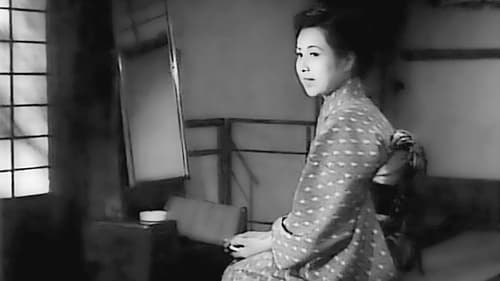
Toichi, Mihoko's husband
Ten years into a marriage, the wife is disappointed by the husband's lack of financial success, meaning she has to work and can't treat herself and the husband finds the wife slovenly and mean-spirited: she neither cooks not cleans particularly well and is generally disagreeable. In turn, he alternately ignores her and treats her as a servant. Neither is particularly happy, not helped by their unsatisfactory lodgers. The husband is easily seduced by an ex-colleague, a widow with a small child who needs some security, and considers leaving his wife.

Ryukichi Ogata
Gosho’s most celebrated film both in Japan and the West, Where Chimneys Are Seen is perhaps the most compelling example of his concern for, and insights into, the everyday lives of lower-middle-class people. Based on Rinzo Shiina’s novel of the absurd, the film depicts the lives of two couples against the backdrop of Tokyo’s growing industrialization during the 1950s.

Isaku Nakahara
A married couple looking for an apartment move in with the husband's co-worker, a widower. The husband becomes jealous of the widower and his wife.

Michio Kawai

Buntaro, the president of a food trading company got tired of the day-to-day routine of life. The new secretary, Nobuko, suggested her "shacho-san" (the president) run away from the job. Nobuko took Buntaro to her home and introduced him to her own family as friend, "Sachio-san"...

Atsuko is an office secretary who is also her family's primary source of income and caretaker in postwar Japan.

Minotu Fujisaki
Bittersweet shomin-geki drama by Keigo Kimura

Managing Director Nakahara
Melodrama by Kon Ichikawa
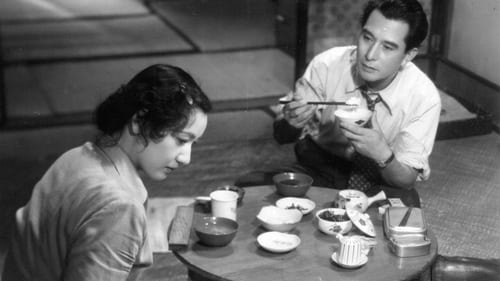
Hatsunosuke Okamoto
Situada poco después de la Segunda Guerra Mundial, El almuerzo cuenta las dificultades matrimoniales entre el salaryman Hatsunosuke y su mujer Michiyo. Se centra en la crisis emocional de una ama de casa aburrida. El tedio de su vida doméstica -consumida por la repetición de labores como cocinar y limpiar- aumenta con la visita de la sobrina de su marido, Satoko. Su llegada y la excesiva atención que le presta su marido, provocan el aumento de la infelicidad de Michiyo, forzada a enfrentarse con su futuro

Masao
Japanese drama film.

Tohari
Thriller drama by Kon Ichikawa

Wataru Naohiko who has the prosecutor general as his father became a young composer and its symphony "saint" invoked the world echoed. But his disciple Uchiyama and his best friend prosecutor Daisuke Toki accused his music as a sesame of pause-only technique, not a truly heart-hungry art.

Japanese "kayo" film based on the song "Ieraishan" by Yoshiko Yamaguchi.
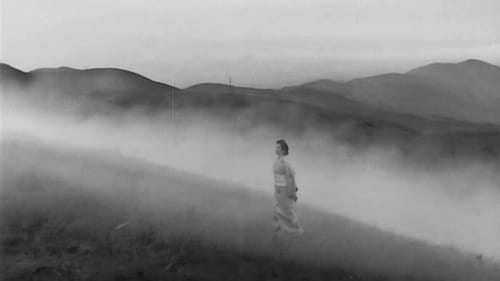
Masaya Kikunaka
Hamako has just started working for her personal hero, Madame Yuki. Her romanticized view of the Madame is broken immediately, though, as she is introduced with a ever-growing list of the Madame’s personal problems.
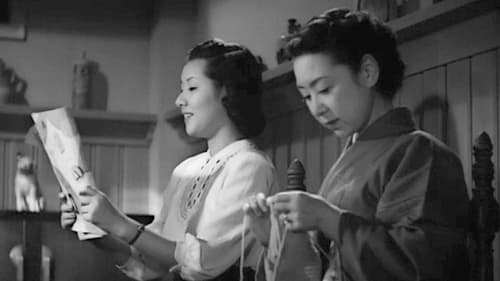
Hiroshi Tashiro
Setsuko se siente desgraciada al lado de su marido, un ingeniero alcohólico y sin trabajo. Ella estuvo siempre enamorada de Hiroshi, aunque nunca llegaron a prometerse, porque él emigró a Francia. Ahora, que ha regresado a Japón, la hermana de Setsuko intenta unirlos de nuevo. El único problema es que ella también está secretamente enamorada de él. (FILMAFFINITY)

Melodrama by Kiyoshi Saeki

Tamiya Iemon
Part 2 starts where the first film ended, with Iemon disposing of the bodies of his wife and Kohei, marrying upward, and being blackmailed by the evil Naosuke.
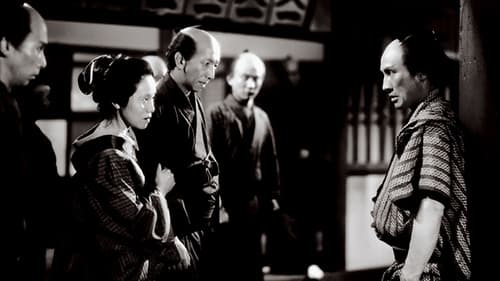
Tamiya Iemon
Iemon Tamiya is an impoverished masterless samurai who craves a better life, which he cannot have because of his marriage to Oiwa, who is completely devoted to her husband.

Kinuhiko Daiwa
A love triangle among a girl, her poor boyfriend, and a rich company president.

Tokihiko Aida

Kawakita Koroku
A young man rents an apartment in Tokyo and discover it was built by his father. He falls in love with the daughter of the mistress of the house and decides to marry her. Only to discover that his father is is in debt and wants him to marry Ranko so that she may help his company by granting 1.5 million yen. Teruko decides to borrow money from a greedy bar owner who lends her money on certain conditions and photographs her without her consent. A love traingle forms between Koroku, Ranko, and Teruko. Things complicate when Koroku marries Teruko and Tsugawa threatens them for the money causing many twists and turns.

Tsumoru Sugawara
In postwar Japan a young woman is unable to marry her sweetheart because her family's in difficult circumstances and needs her income to keep afloat.

舟田(楽団リーダー)

Makoto Ichino, Navy
Hisshoka is a 1945 Drama film directed by four Japanese directors.

Nishina
Tomuhiko es un niño de 10 años que pasa su infancia bajo la sombra de una guerra civil japonesa, en 1896. Su único objetivo será alistarse en el ejército y cumplir la promesa que le hizo a su padre....
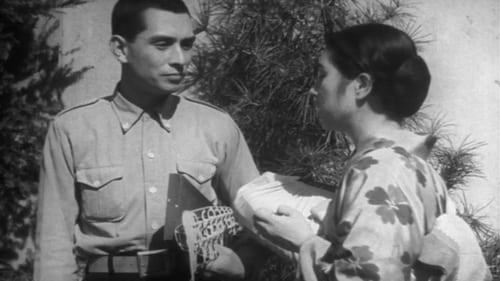
Shingo Furukawa
The few residents left on the streets in Tokyo share their individual stories and come to understand the melancholy of saying goodbye.
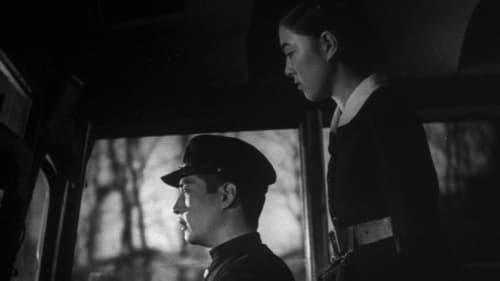
A wealthy family will not allow the military to grow crops on their fields due to their superstitious beliefs about their son's illness.
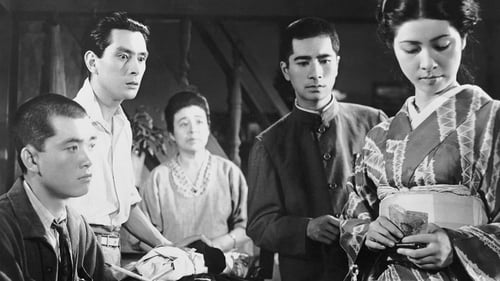
Tomekichi
The sweet but naive denizens of a charming port town are hoodwinked by a couple of con men at the outset of World War II. But the hustlers’ plan backfires when they come down with severe cases of conscience. Keisuke Kinoshita’s directorial debut is a breezy, warmhearted, and often very funny crowd-pleaser that’s a testament to the filmmaker’s faith in people.

Japanese war movie.

Kempeitai fights American spies in Japan

Inoue was something of a rarity in the sense, that he was a Shochiku house director who seems to have worked mostly in period films, often with big stars like Hasegawa or Bando. "Sumidagawa", named after the river that runs through Tokyo, is also a period film, but thematically a modern one. All the themes that you associate with the normal Shochiku women's films set in the present day are in this film, just in a different context: love, the planning of a marriage, career, family relations and societal melancholy. There is no action or swordplay.

Most of the students studying Ikebana with Kozoe Iemoto are daughters of rich Tokyo families. Kozoe meets and grows close to a doctor who proposes marriage but whose mother harbours ill feeling towards her because of an incident in the mountains where a child got into difficulties. Kozoe rejects the proposal but falls ill and when she recovers, decides to devote herself entirely to the world of flower arranging.

In the movies of those times, you can see young boys in the company scene often. Those boys were called kyuji (給仕), which means “waiter” literally. They are doing odd jobs in the company including serving tea, ushering visitors, buying tobacco, etc. Ordering lunch for the individual requests was also an important job. Those boys were hired often as soon as they graduated from elementary school.

Shôtarô Hiramatsu
Uta’s mother died when she was six years old; her father she never met. She was forced to adopt a traveller’s life when her grandmother died, and now she is a dancer and part of a family of actors who travel from town to town, setting up street performances. A way of escape from this marginal existence arises when she gets the chance to move to tea merchant Hiramatsu’s place, where she is asked to teach his daughter to dance.

Weed with Flowers
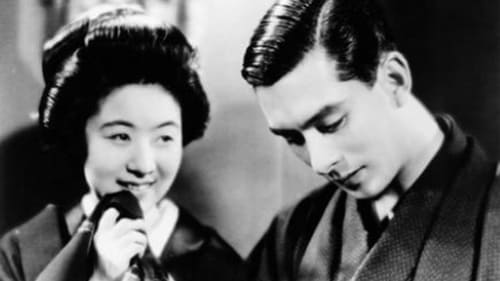
Shunsaku
A young student of traditional dance falls in love with a handsome young man who visits the dance school in order to take photographs.
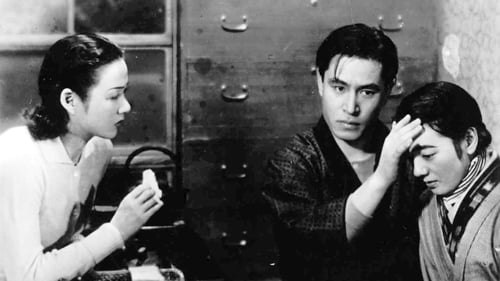
Michio Arita
A man who works late hours at a deadening job lives together with his wife and his younger sister. The younger sister's a modern girl who's starting to receive romantic attention from one of her co-workers.

Naomi Tazawa (Hiroko Kawasaki), who works at Isetan Department Store, was told by an executive at a film company (Ken Uehara), that he was going to make a film about her. She was scouted to become an actress, but she held strong. Around that time, her adoptive father dies, and at the time of his death, she learns that her real father was a man of high rank.

Ichiro Tsuji
Two childhood friends go their own ways but meet again some years later after they have both married. They get re-acquainted, meet each others’ families, and all is well. Then the disagreements start...

Kozo Tsumura
A young doctor, Kozo Tsumura, falls for young nurse Katsue Takaishi. But she's got a secret: she's a widow with a son. Kozo and Katsue decide to run away to Kyoto, but her child suddenly became sick and she just missed the train and Kozo. She makes it to Kyoto finally, but is unable to meet him. Plus she isn't accepted into Kyoto society. She goes back to her hometown and tries to forget him. She quits the hospital to concentrate on her singing. She makes her professional debut with the hit "Aizen Katsura". Kozo is in the audience.

Shichirō Yamagami
Pre-war Asakusa was a riotous district of cabarets, dance-halls and brothels - a striking backdrop for Shimazu's story of innocence and experience. Pretty, young Reiko is the new dancer in an infamous theatre troupe, and her fellow performers try to protect her virtue in a land of vice. Meanwhile, an ageing actor wants to be a hero off stage as well as on, and the troupe matriarch Marie has to keep them all together.
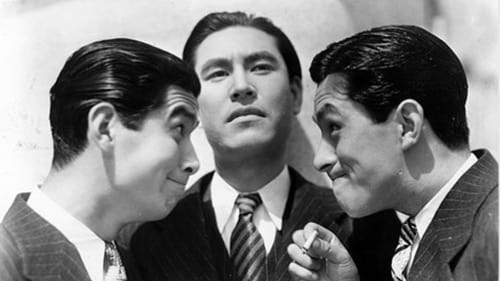
Ken Taniyama
Three men vying for the same job end up chasing the same girl in this comedy-drama from noted Japanese director Yasujiro Shimazu.

A businessman’s daughter falls in love with one of her father’s employees.

Movie star
El profesor Komiya está casado con Tokiko, una mujer muy estricta y dominante. El matrimonio tiene que hacerse cargo de la custodia de su sobrina Setsuko que, aunque menor de edad, ya es una mujer liberada, que fuma y sale de noche. Un sábado Komiya va a un bar, donde encuentra accidentalmente a Setsuko. Cuando Tokiko ve que la chica llega a casa con uno de los estudiantes de su marido y, además, se entera de que éste no ha dormido en casa, empieza a alimentar toda clase de sospechas.

The eldest daughter of a noble family is in love with an aviator while being courted by a fellow aristocrat she thinks is a dullard. Told from the perspective of Ryota. In this second part, we learn that Akemi is pregnant...

The eldest daughter of a noble family is in love with an aviator while being courted by a fellow aristocrat she thinks is a dullard. This part is told from the perspective of Akemi.

The narrative is about a woman who faces hard times, when her husband is arrested for a crime committed by his boss. The woman also has a child to look after, and they end up meeting several colorful personalities.

A musical film made for the inauguration of Shochiku's Ofuna Studio, with an all-star cast of the era.

Mr. Thank You
Un carismático conductor de autobús es apodado "Arigatô-san (Sr. Gracias)" debido a las constantes palabras de agradecimiento que dirige a los peatones que le dejan paso en el camino. En uno de sus viajes desde el pueblo de Izu hasta la ciudad de Tokyo llevará en su autobús, entre otros variopintos personajes, a una madre que se ha visto obligada por la penuria económica a mandar a su hija a trabajar en un burdel.

Man
A Japanese film





























































